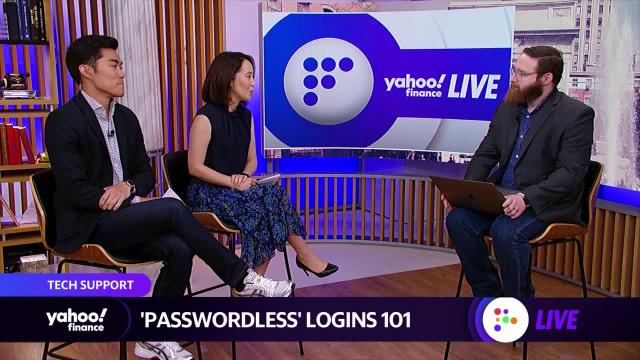

Apple, Microsoft, and Google want you to go passwordless. Here’s what that means
source link: https://finance.yahoo.com/news/what-going-passwordless-means-203926527.html
Go to the source link to view the article. You can view the picture content, updated content and better typesetting reading experience. If the link is broken, please click the button below to view the snapshot at that time.

Apple, Microsoft, and Google want you to go passwordless. Here’s what that means
- +2.26%Watchlist
- +2.96%
- GOOGL+2.84%
- +3.19%
We live in a world of passwords. From Spotify (SPOT) to Gmail to TikTok to your computer itself, passwords are everywhere. And they’re awful.
They need to have a certain amount of characters, contain numbers and letters and special symbols, and ideally shouldn’t match your passwords for other sites. And if you follow all of the right cybersecurity rules, you’re also changing your password every few months.
Oh, and then there’s multi-factor authentication — you know, those apps that send you an alert or text after you sign into account to make sure you really are who you say you are.
And even if you follow all of these steps to stay safe online, your password can still ultimately be hacked, exposing your personal accounts to hackers and cybercriminals.
But thankfully, a solution to the password problem will soon let you log into your app and browser-based services without a password. Yes, you read that right; you’ll be able to kill off a chunk of your passwords for good.
The technology comes via the FIDO (fast identity online) Alliance, and allows you to use your phone rather than a password to authenticate who you are. Earlier this month, Microsoft (MSFT), Google (GOOG, GOOGL), and Apple (AAPL) said they’d soon adopt the standard to work across apps and websites, meaning you’ll eventually be able to log into a website in Chrome from your Windows PC using your iPhone.
The idea is for you to register your identity via your smartphone using its facial recognition, fingerprint ID, or your passcode. Once you’ve stored your identity on your phone, it stays there.
From then on you’ll be able to log into websites and apps that use FIDO’s standard by entering your username and then using your phone to tell the app or site that you’re you.
The whole thing might sound a little out there, but some companies already offer passwordless sign-in options. In fact, I use a similar feature with my Microsoft account, which requires me to enter my username and then authenticate my identity via the company’s own Authenticator app.
Recommend
About Joyk
Aggregate valuable and interesting links.
Joyk means Joy of geeK